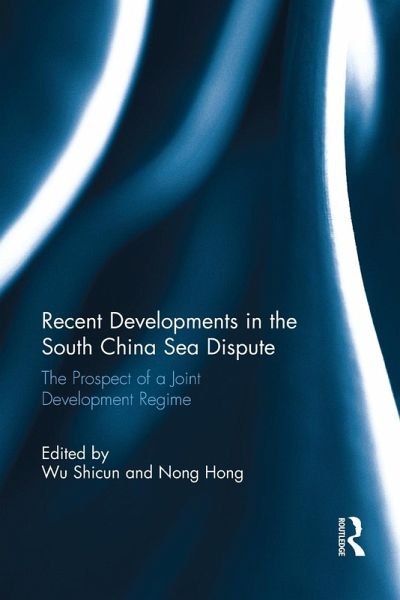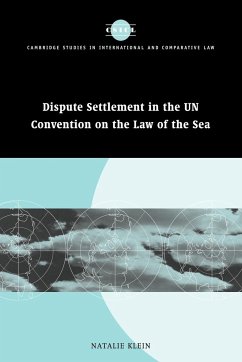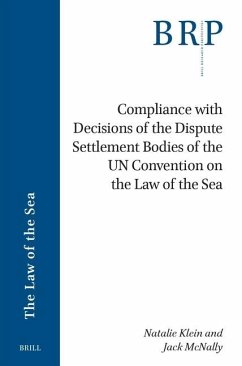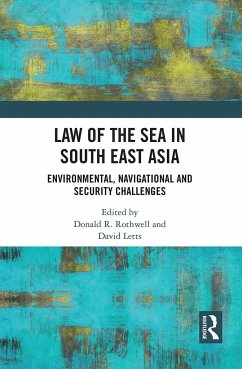
Recent Developments in the South China Sea Dispute
The Prospect of a Joint Development Regime
Herausgeber: Shicun, Wu; Hong, Nong

PAYBACK Punkte
33 °P sammeln!
The South China Sea region contains potentially huge deposits of petroleum and natural gas, important shipping lanes and fishing areas, and is subject to a number of maritime territorial disputes. This edited volume analyzes the most recent development in the South China Sea dispute looking at the positions taken by China, the ASEAN countries, and the US. In recent years maritime joint development zones have emerged as an important means to overcome deadlock in relation to maritime jurisdictional claims. This book tests the applicability of joint development regime in this region and explores ...
The South China Sea region contains potentially huge deposits of petroleum and natural gas, important shipping lanes and fishing areas, and is subject to a number of maritime territorial disputes. This edited volume analyzes the most recent development in the South China Sea dispute looking at the positions taken by China, the ASEAN countries, and the US. In recent years maritime joint development zones have emerged as an important means to overcome deadlock in relation to maritime jurisdictional claims. This book tests the applicability of joint development regime in this region and explores the prospect of joint development of resources as a way to successfully manage the conflict in the South China Sea. Eminent scholars in the field of South China Sea studies have contributed original chapters to the volume covering such issues as: the legal framework for joint development; how joint development might work in practice; the challenges faced by and the prospects arising from joint development; and the way forward for the region.














